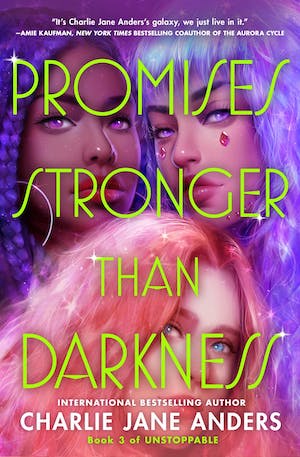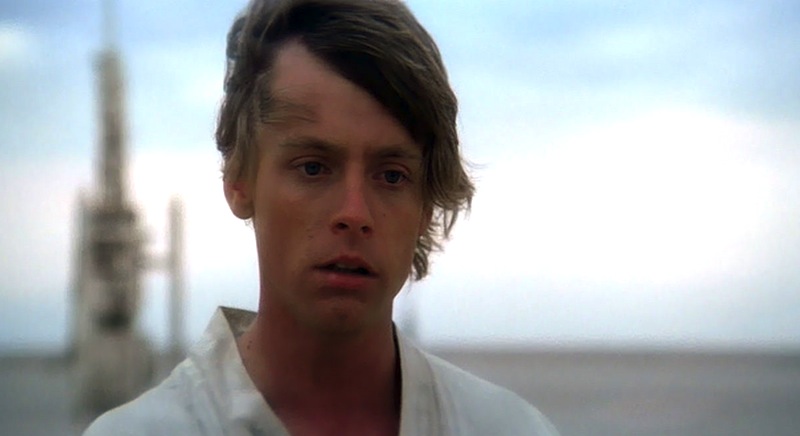I think one decent litmus test for any story is: is it about what it’s about?
This may sound kind of silly—how can a story not be about what it’s about? Except that I think this happens fairly often, to some extent. It’s one of my pet peeves, and it’s something I think about a lot in my own work. I spent years learning how to make my stories be about what they’re about, and this is still something I struggle with.
Here’s what I mean: a lot of stories neglect their crux or their core issue, getting distracted by shiny objects or fun digressions. I’m not just talking about stakes, or plot stuff generally—I’m talking about the heart of the story, the thing that we keep coming back to and obsessing about. The emotional core. This could be the central conflict, if it’s an especially conflict-driven story, but it could also just be a main thematic concern. Or a relationship that everything revolves around, or a community that is at the heart of things. I usually feel like the more you can stay in touch with whatever that thing is, the stronger the story is.
To better explain what I mean, though, let’s pick on a famous example of a story that isn’t about what it’s about: the original Star Wars trilogy.
Feel free to disagree, but I think the crux of the Original Trilogy is whether Luke Skywalker will go down the same way as his father. Anakin Skywalker was a young Jedi with tons of power and potential, but he fell to the Dark Side and became Darth Vader. When Luke shows up, everyone is worried he’s going to swerve down the same path. It’s the closest thing to a thematic through-line these movies have. And it’s what the climax of Return of the Jedi is (mostly) about: the Emperor finally meets Luke and tries to turn him, only to have Luke turn Darth Vader back to the Light Side instead.
But of course, these movies aren’t at all about whether Luke will fall to the Dark Side, especially the first one. The Dark Side is only mentioned once in A New Hope, when Obi-Wan mentions in passing that Vader was seduced by it. The question of whether Luke is going to repeat his father’s mistake is crucial to the ending of Return of the Jedi, as I mentioned above, but it’s only discussed in one scene in RotJ before that, where Luke returns to Dagobah and finds Yoda on his death bed. Only in The Empire Strikes Back is the danger of Luke falling to the Dark Side made into a real issue, especially when Luke rushes to confront Vader before he’s ready. (And Vader’s attempt to sway Luke to his side in Empire is a darn sight more effective than the Emperor’s similar attempt in Return of the Jedi.)
Obviously, part of the issue is that George Lucas didn’t know that Darth Vader was Luke’s father when he made A New Hope. (He didn’t even know that the movie he was making was called A New Hope!)
But also, to do justice to the question of whether Luke will embrace the Dark Side, these movies would have to get, well, dark. We’d need to see a lot more of Luke being tempted by darkness and rage, probably more than the brief flirtations we witness in Empire and Return—maybe similar to what we saw with Anakin in the Clone Wars animated series, or Quinlan Vos in some of the Dark Horse comics. You’d have to build a whole arc in which Luke gains confidence in his Jedi skills, but he keeps being tempted to take shortcuts or lash out, and we’d need to see the danger grow in tandem with his power. That would be a very different trilogy than the one we got, to say the least.
Let’s address the bantha in the room: it’s probably true that Star Wars wouldn’t have been nearly as popular if it had come closer to telling the story of Luke being tempted by the Dark Side. It’s probably one reason why Empire Strikes Back, though beloved and critically acclaimed, was the least successful at the box office of those three original films. A lot of the appeal of Star Wars, originally, was that it was a fun ride, featuring pew-pew-pew space battles and lovable characters—this is what gave rise to the four-quadrant blockbuster as we know it today—and I honestly love the goofy fun of it all. It’s what I fell in love with as a kid.
Buy the Book


Promises Stronger Than Darkness
So I’m not giving advice on how to create something popular or widely beloved here. Rather, I’m expressing an aesthetic preference.
So how do you make sure your story is about what it’s about? Let’s start by acknowledging that a story can be about more than one thing, and there’s nothing wrong with an episodic structure or a travelogue or whatever. A story can deal with a whole cluster of ideas.
But when I’m writing a story, and especially when I’m revising, I look at a couple of things:
1) What are the characters asking themselves and each other? What is/are the problem(s) or philosophical issue(s) that they worry about and debate and fuss over? Put another way, I think a really good scene is worth its weight in gold, and when I write a scene where the characters are talking about something and they seem really alive and present and I can feel their personalities shining through, I think to myself: I should find ways to get them to talk about that thing more, whatever it was. It’s obviously something that cuts close to the bone for these people.
2) What does the ending come down to? If the final moments of the book come down to an omelette-making contest in which the hero proves they can make the best omelette in the world, then I probably need to see the hero practicing making omelettes before this—but I might also want the hero to worry about whether they’re ever going to be a good enough omelette-chef, and what exactly is the nature of a perfect omelette? Do we judge omelettes by cohesion, shape, fluffiness, some other criterion? Is there any such thing as a Platonic ideal of a perfect omelette? Etc., etc.
Like I said before, earlier in my career I wrote many stories and a few novels that weren’t really about what they were about, so this is something I think about quite a lot. I don’t think this is a question of writing skill, exactly, so much as just paying attention to what’s important in the story so you can strengthen that. Of course, every story is different and there are no rules, so take this with the usual heap of salt.
This article was originally published at Happy Dancing, Charlie Jane Anders’ newsletter, available on Buttondown.
Charlie Jane Anders is the author of the young-adult trilogy Victories Greater Than Death, Dreams Bigger Than Heartbreak, and Promises Stronger Than Darkness (which publishes on April 11, 2023), along with the short story collection Even Greater Mistakes. She’s also the author of Never Say You Can’t Survive (August 2021), a book about how to use creative writing to get through hard times. Her other books include The City in the Middle of the Night and All the Birds in the Sky. Her fiction and journalism have appeared in The New York Times, the Washington Post, Slate, McSweeney’s, Mother Jones, the Boston Review, Tor.com, Tin House, Teen Vogue, Conjunctions, Wired Magazine, and other places. Her TED Talk, “Go Ahead, Dream About the Future” got 700,000 views in its first week. With Annalee Newitz, she co-hosts the podcast Our Opinions Are Correct.










